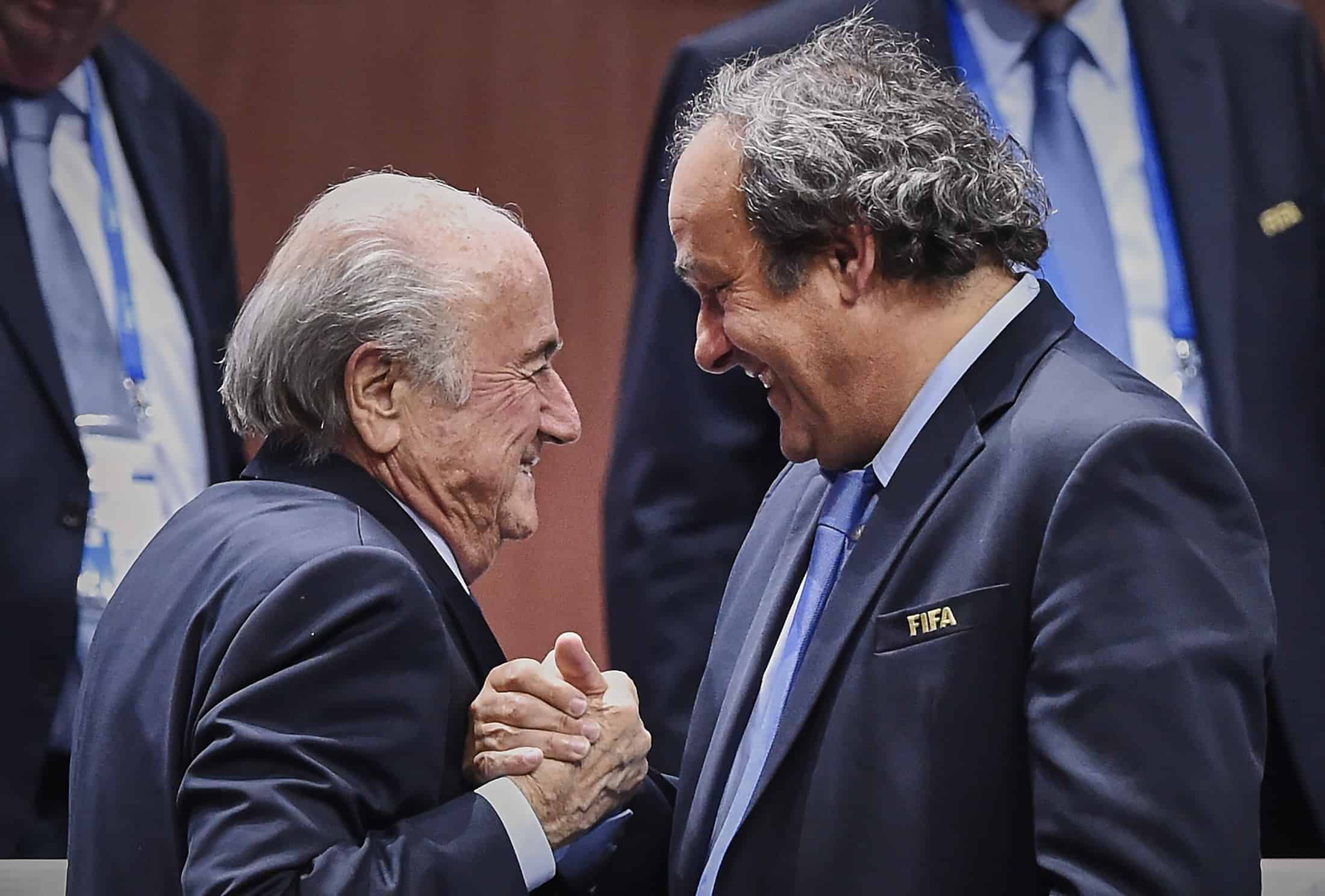Swiss authorities announced on Friday that they had opened a criminal investigation of FIFA President Sepp Blatter. It seems the probe into corruption at soccer’s global governing body is finally working its way up to the top. FIFA’s independent ethics committee has opened its own investigation of Blatter. That’s led to rumors that he might step down sooner than his planned February resignation, though he quickly rebutted those notions Monday and said he’s done “nothing illegal or improper.”
But while Blatter is the main focus of the investigation and coverage, the more immediate concern in soccer is Michel Platini, president of soccer’s governing body in Europe and the person most likely to succeed Blatter. The Swiss Attorney General’s office is accusing Blatter of making a “disloyal payment” — one that works against the interests of the association — of around $2.1 million to Platini in 2011, just weeks before Platini dropped his bid to challenge Blatter in FIFA’s presidential elections. Platini maintains that the payment was declared to authorities “in accordance with Swiss law,” and was compensation for consulting work he did between 1998 and 2002. If that’s true, we have yet to receive an explanation for why the payment was delayed nine years.
Each development in the FIFA probe seems to emphasize just how wide international soccer’s web of corruption is, and the revelation about the Platini payment is no exception. It also shows how far-fetched it is to imagine that a successor to Blatter who comes from within FIFA’s inner circle would represent reform, as opposed to business as usual. When Blatter announced that he would step down after a special election next year, critics scoffed at the wisdom of putting Platini in the top job, noting that he was instrumental in helping Qatar win a tainted bid for the 2022 World Cup.
Platini has pushed for some financial reform, but he’s also been a close friend of Blatter’s and is deeply embedded in FIFA’s power structure. There are some parallels between the situation at the soccer association and at Volkswagen, which also finds its leader embroiled in corporate scandal. Amid revelations that the company falsified diesel-engine emissions data, Martin Winterkorn stepped down as CEO last week, with former Porsche CEO Matthias Mueller named as his successor.
Mueller is a VW veteran, with 40 years at the company. Furthermore, Bloomberg’s Chris Reiter and Christoph Rauwald report, Winterkorn will continue to supervise Mueller by remaining the top executive at Porsche Automobil Holding SE, Volkswagen’s dominant shareholder. Just as Blatter’s lingering presence blemishes FIFA, Winterkorn’s “raises questions about whether VW can truly reform itself with old-guard insiders in key positions,” Reiter and Rauwald write.
Perhaps FIFA can take a cue from VW as both try to restore their shattered credibility. Last week, the Volkswagen Group announced it was restructuring the company as part of a plan that “strengthens the brands and regions.” Any real move to reform FIFA must similarly start with decentralizing power. That goal was the linchpin of Prince Ali bin al-Hussein’s candidacy when he challenged Blatter in FIFA’s leadership election in May. His reform proposals included presidential term limits and drastic increases in revenue payouts to national associations, from $250,000 to $1 million per association per year. “You cannot run everything simply from Zurich,” he said at the time.
The latest investigation into Blatter and Platini shows that you also can’t run everything from within FIFA in its current form. The association needs to look elsewhere for potential successors to Blatter and break with its old guard. Perhaps choosing a woman might be a good place to start.
— Kavitha Davidson writes about sports for Bloomberg View.
© 2015, Bloomberg View






